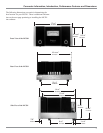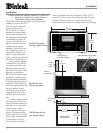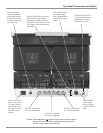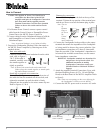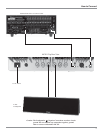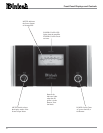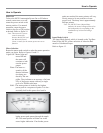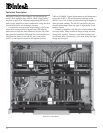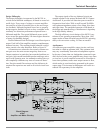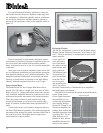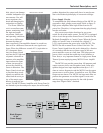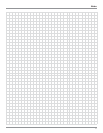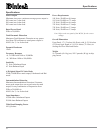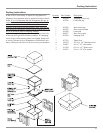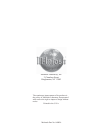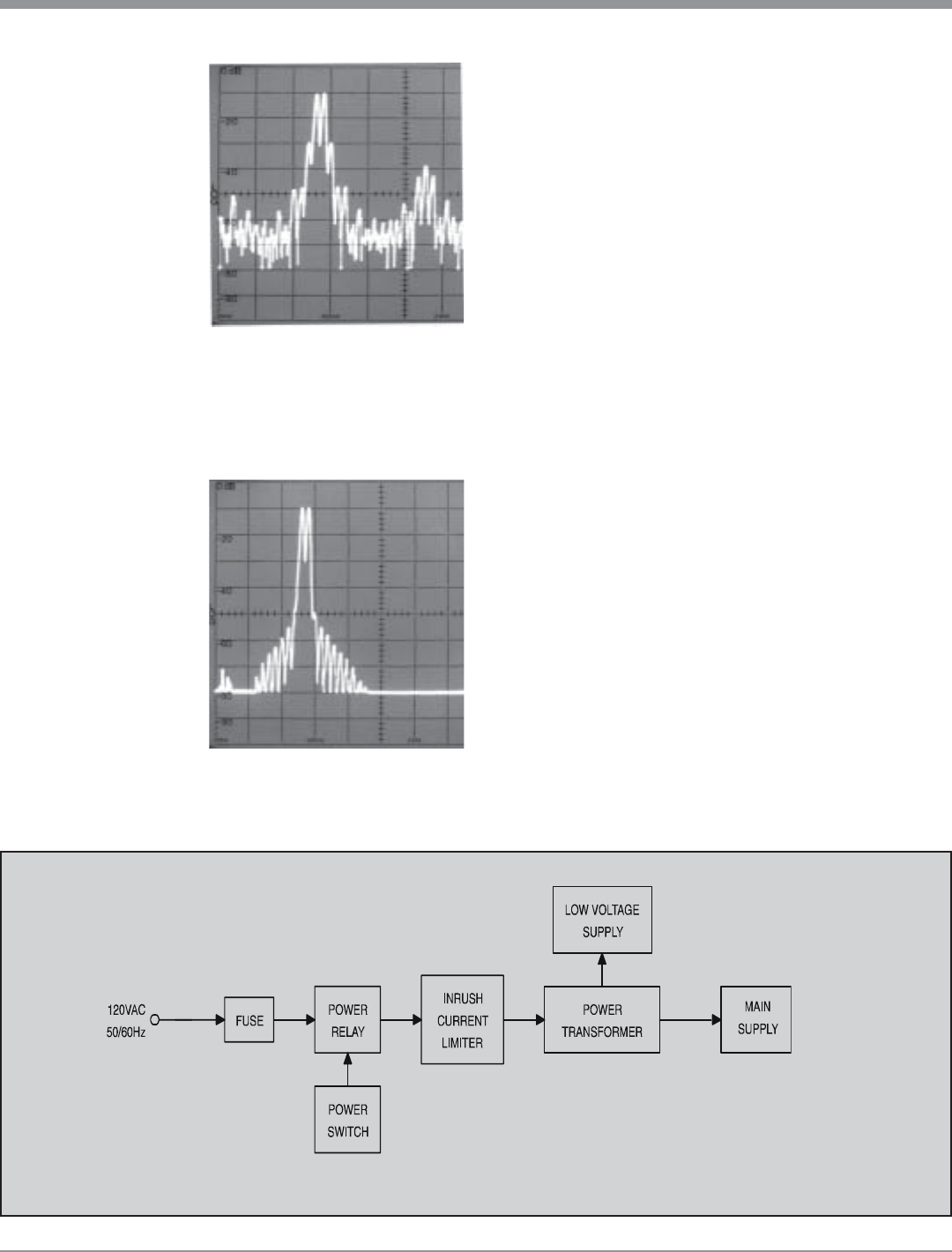
15
Technical Description, con’t
Figure 20
With Power Guard
Figure 19
Without Power Guard
able, since it can damage
valuable loudspeaker sys-
tem tweeters. You will
never experience the
harsh and damaging dis-
tortion due to clipping.
The Power Guard cir-
cuit is a waveform com-
parator, monitoring both
the input and output
waveforms. Under nor-
mal operating conditions,
there are no differences
between the shape of
these waveforms. If an amplifier channel is overdriven,
there will be a difference between the two signal wave-
forms. When the difference exceeds 0.3% (equivalent to
0.3% harmonic distor-
tion), the Power Guard
activates the PG light and
a dynamic electronic at-
tenuator at the amplifier
input reduces the input
volume just enough to
prevent any further in-
crease in distortion. The
Power Guard circuit acts
so fast that there are ab-
solutely no audible side
effects and the sonic pu-
rity of the music repro-
duction is perfectly pre-
served. The MC501 Power Amplifier with Power Guard is
not limited to just the rated power output, but will actually
produce distortion free output well above its rated power
due to the McIntosh philosophy of conservative design.
Power Supply Circuits
To compliment the fully balanced design of the MC501 in-
corporates a high voltage power supply. Refer to figure 21.
High power amplifiers draw high current from the AC
power line. Therefore, it is important that they plug directly
into the wall outlet.
Also, most owners desire that there be one power
switch for the whole audio system. The MC501 is equipped
with a circuit that provides remote Power Control from the
McIntosh Preamplifier or Control Center. When the Pream-
plifier or Control Center is switched On, a digital “1”
(+5V) signal operates the power relay in the MC501. The
MC501 also has a remote Power Control Out Jack. The
Power Control signal from this jack is delayed by a fraction
of a second so that the turn on power surge of the next
power amplifier occurs at a later time. This helps prevent
power circuit overload that could trip circuit breakers or
blow fuses, a very important feature in a high power Home
Theater System employing many MC501 Power Amplifi-
ers.
The MC501 can provide greater than 100 amperes peak
output current to drive uneven speaker loads. Some poor
speaker designs have input impedance that dip to 1 or 2
ohms at various frequencies and the MC501 has the output
current reserve to drive them. It can deliver over 500 Watts
Output on tone bursts. The MC501 has huge main filter ca-
pacitors that guarantee an excellent signal to noise ratio
and the energy storage necessary for the wide dynamic
range that “Digital Audio” demands.
Figure 21
Block Diagram
of the
Power Supply



